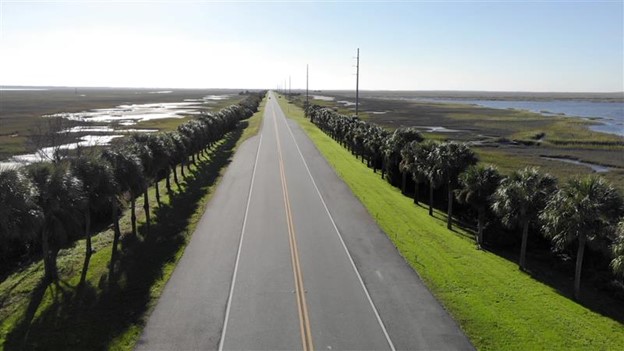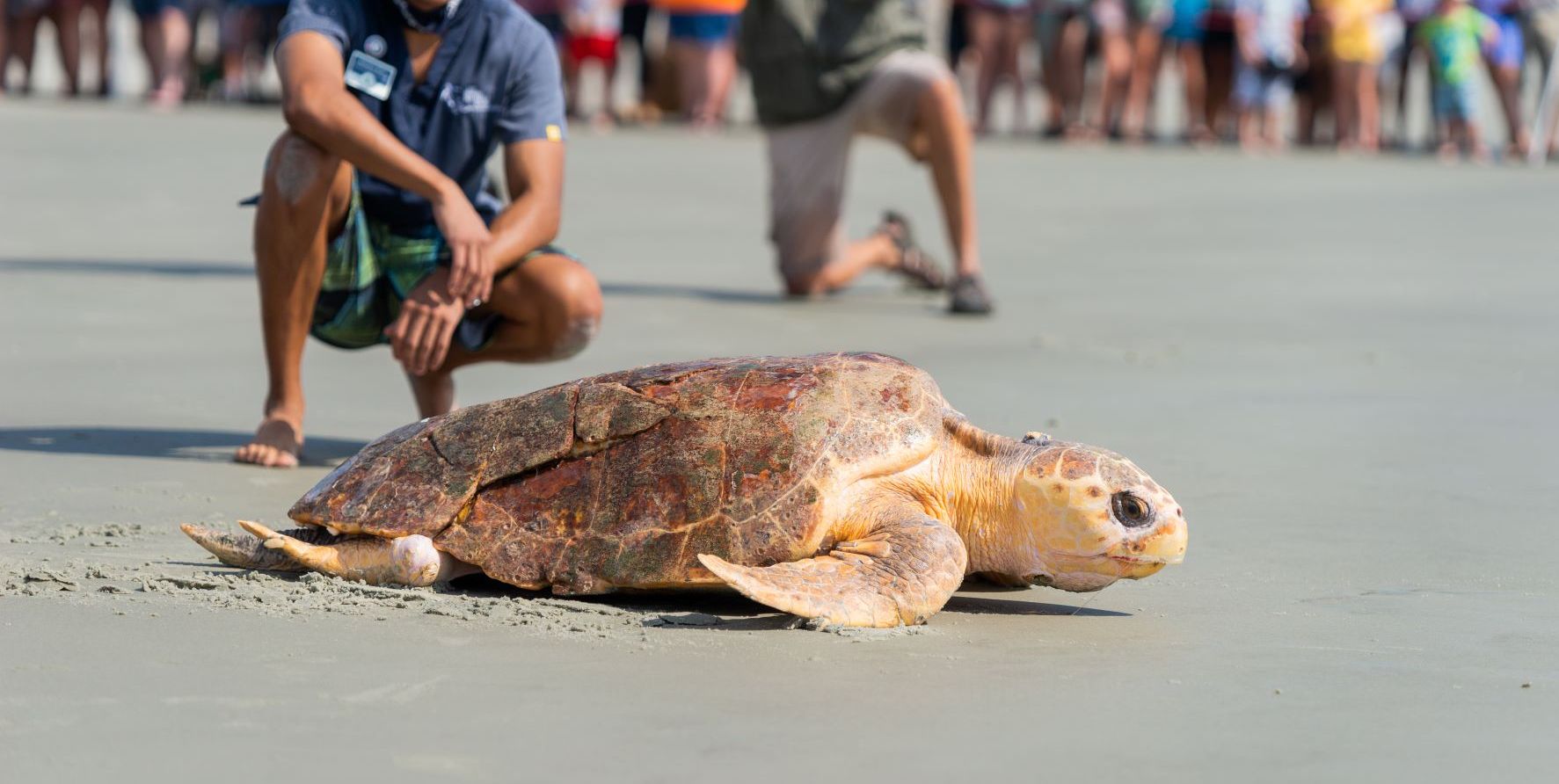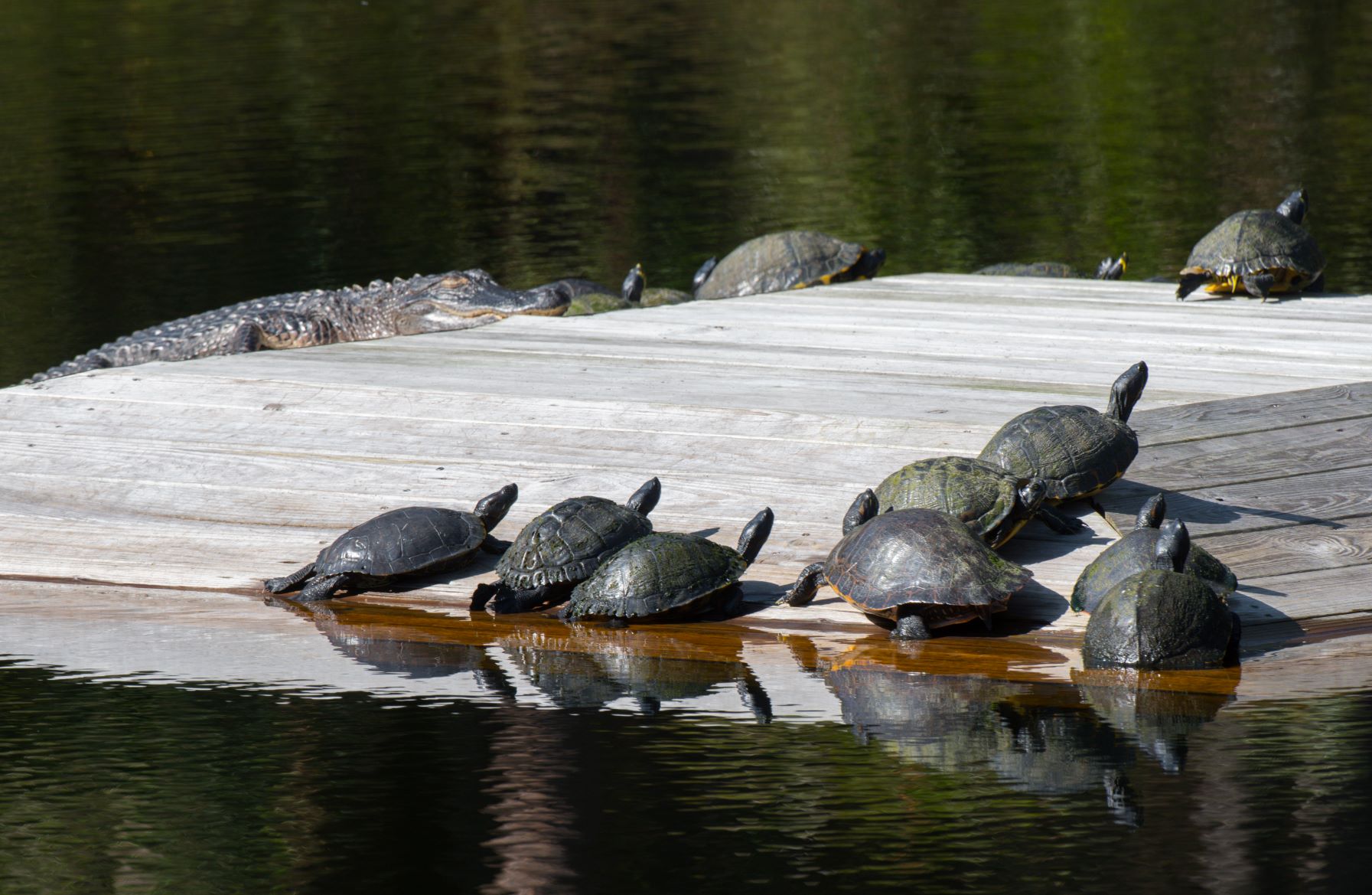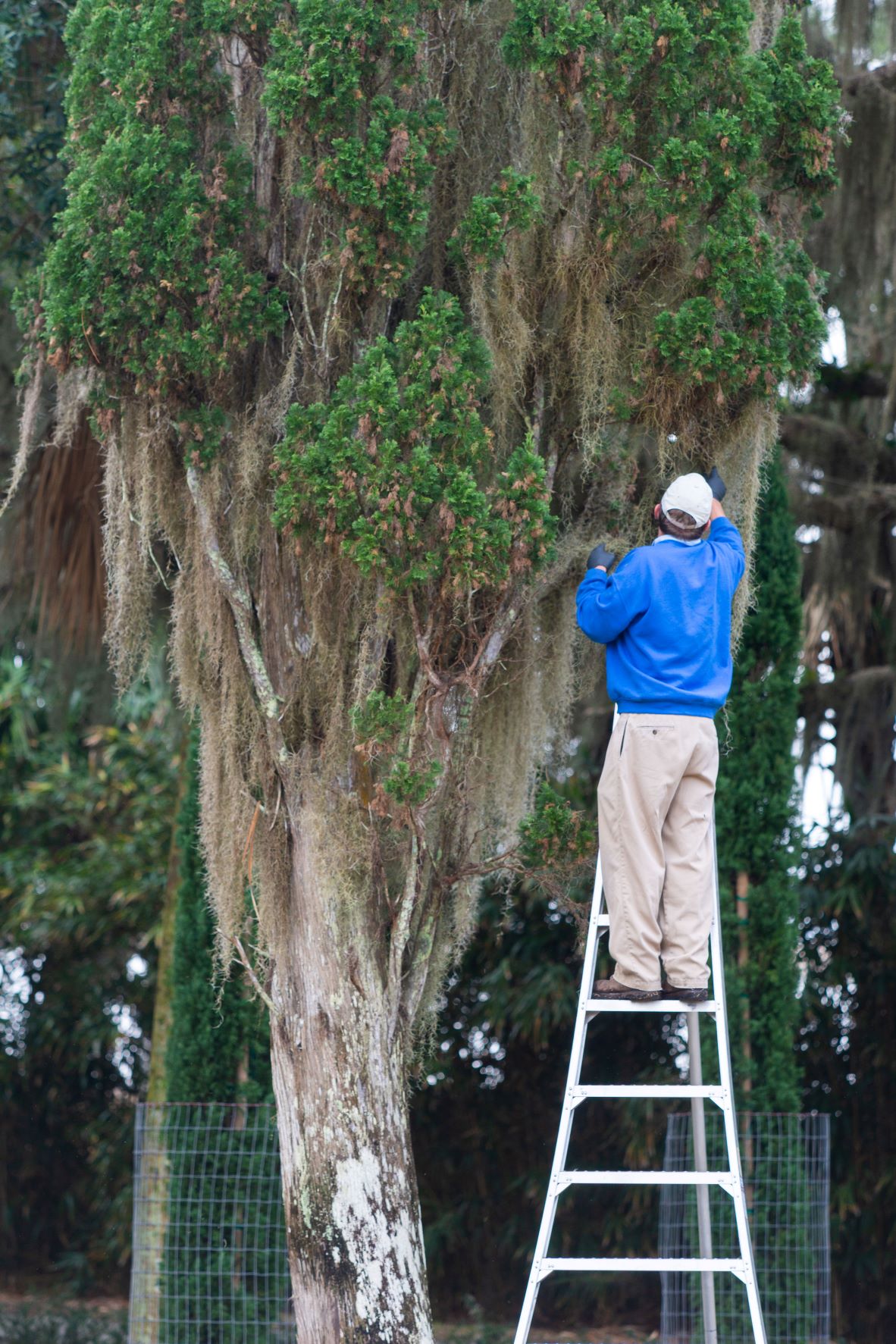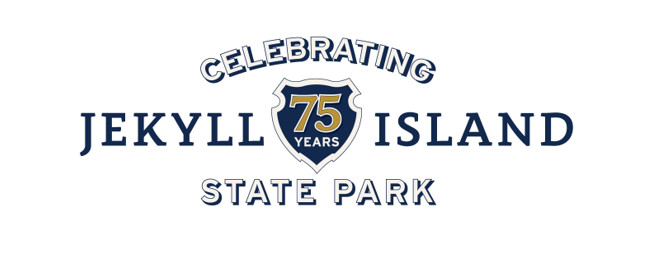By Ben Carswell, JIA Director of Conservation and Sustainability
This year, 2022, marks the 75th anniversary of the establishment of Jekyll Island State Park. And yet, many visitors to Jekyll Island never know that this unique place contains more than just the Island itself. In fact, by the time one slows to make the turn from Highway 17 onto the Downing Musgrove Causeway, they have already crossed into its welcoming boundaries. The six miles of causeway to follow offers expansive views across nearly 7,000 acres of tidal marshlands brimming with biological diversity and dotted with forested marsh hammock isle-lets, all of which lies within the Park’s boundary. This lesser-known side of Jekyll Island, known as the “back-barrier marshes” covers more area than the Island itself and supports over half of the Wildlife Priority Species identified in the Jekyll Island Conservation Plan.
Like its State Park boundary, the work of the Jekyll Island Foundation doesn’t stop at the foot of the bridge onto the Island. The Jekyll Island Conservation Plan sets forth the following management priorities for the Causeway and back-barrier marshes:
- Minimize vehicle strike mortality of Wildlife Priority Species
- Reduce immigration of exotic-invasive plants and animals
- Prevent loss of elevation due to erosion or compaction of soils surrounding the Causeway
- Promote habitat diversity
- Maintain a safe and enjoyable experience for drivers and cyclists that affords opportunities to appreciate the natural beauty and abundance of wildlife evident upon arriving
The excellent work spearheaded by the Georgia Sea Turtle Center to better understand and protect Diamondback Terrapins along the Causeway is a shining example for how Foundation dollars can make a difference towards achieving these goals. Another For the Record piece this month highlights the latest big step in efforts to help terrapins avoid roadway hazards. And coming soon, thanks to generous donor support through the Foundation, the Jekyll Island Authority will be able to add a mile of new native wildflower meadow along the east end of the Causeway, making arrival to the Island even more welcoming, not just for human visitors, but for pollinating bees and butterflies as well.
The Causeway and back-barrier marshes are a truly special part of the Jekyll Island experience that connects the Island with the broader community of Brunswick and the Golden Isles, mutually strengthening the well-being of many. The next time you turn onto the Jekyll Island Causeway, take your time, breath in the fresh air, brake for terrapins, and think about giving to the Jekyll Island Foundation. Your contributions go a long way towards empowering better stewardship of every corner of Jekyll Island State Park.
